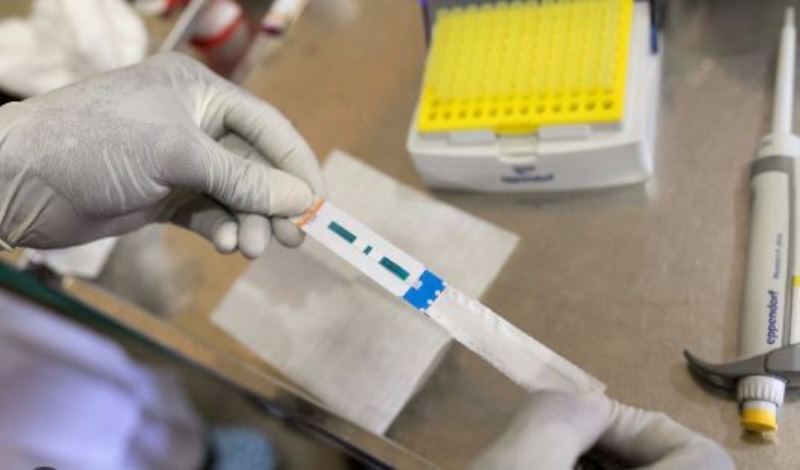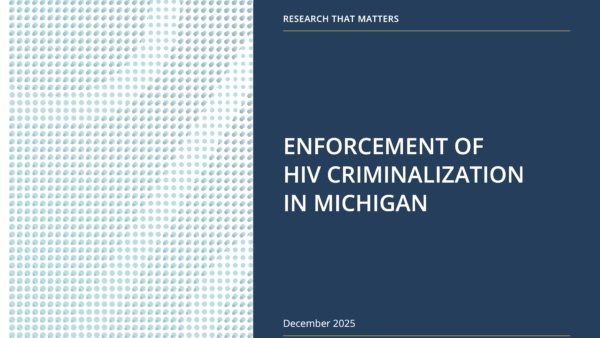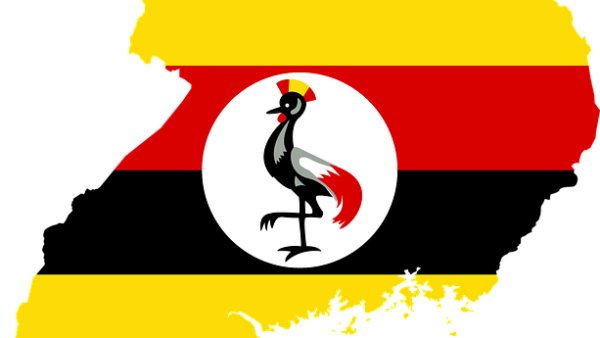
Where to get an anonymous HIV / TB test and free treatment in Tajikistan
HIV and tuberculosis are two complex diseases that require a multi-faceted approach that includes medical, social and educational interventions. It’s crucial to tackle these diseases not only to reduce the number of infections but also to improve the quality of life of people living with them.
The number of people living with HIV among migrants is increasing
In Tajikistan, one in three people with HIV is a labour migrant. Over the past five years, 5,463 cases of HIV infection have been identified, according to data from the Republican Centre for Prevention and Control of HIV/AIDS. Migrants make up 22% of the infected. While in 2019 migrants accounted for only 17% of those infected, by 2023 this figure had increased to 32.5%.
Balajon Davlatov, a specialist in the dispensary department of the Republican HIV Centre, strongly recommends taking a free test at one of Tajikistan’s HIV prevention and control centres immediately after arrival.
“If migrants have doubts about their HIV status, they should be tested when they back home,” Balajon Davlatov said.
According to his words, more than 300 migrants are already on the dispensary registration of the Republican HIV Center. The identity and test results are not disclosed to third parties.
“Any information about each individual should be confidential. You can obtain rapid tests that report a patient’s HIV status within 15 minutes by analyzing saliva – completely anonymously,” says Balajon Davlatov.
HIV tests are available free of charge at one of the 67 state HIV prevention and control centres in all regions of Tajikistan.
In addition to blood testing at AIDS Centres, self-testing using near-blood fluid is now available. Self-testing kits are available in Dushanbe, Rudaki, Khujand and B.Gafurov via online ordering at hivtest.tj.
The order process involves filling out a simple form with a few questions. The platform helps people confidentially know their HIV status and provides up-to-date information on protection and prevention methods.
Those who tested positive for HIV can learn more about their result and get a second confirmatory test at the AIDS Centre.
In Tajikistan, there is an example of an HIV-positive mother who gave birth to two healthy children by stopping the virus from growing in her organism:
“We had a case of an HIV-positive woman. After she was treated with antiretrovirals, she gave birth to two healthy children who were HIV-negative. She’s now based in the Russian Federation and we send her the necessary medication and support. This shows that people infected with HIV can have children who are healthy and lead a full life”, says Balajon.
HIV is a human immunodeficiency virus that attacks the immune system. Most people do not experience any symptoms when they are infected. Sometimes a flu-like condition develops a few weeks after infection. But if abandoned and left untreated, HIV can develop into the final stage, AIDS, when the body is so weak it cannot protect the body from various infections and diseases.
Infecting another person with HIV is a Crime
However, a positive HIV status can bring certain risks, not only related to the state of health, if a person knows that he/she has a positive HIV status, but hides it from his/her sexual partner, within the framework of article 120 of the Code of Administrative Offenses of the RT, he or she may be fined from 720 to 1440 somonis.
Avoiding treatment for HIV or other infectious diseases is also subject to a fine from 1440 to 2160 somoni. This responsibility is stipulated in Article 119 of the Administrative Offenses Code of the RT.
If an individual intentionally infects another person with HIV, he or she can be punished by up to 3 years’ restriction of freedom or up to 2 years’ imprisonment. When a person infects another person with HIV knowing their HIV status, they can face 2 to 5 years in prison. The prison term can be longer – from 5 to 10 years in case more than one person was infected or the victim was a minor. This punishment is stipulated in Article 125 of the Criminal Code of Tajikistan, which characterises these actions not as an ordinary offence, but as a criminal act.
Therefore, it is crucial to have regular tests and status checks, especially if a person is at risk of infection.
How to recognise TB in the early stages
Having an HIV diagnosis, however, a person is not only at risk of committing offences but is also at risk of contracting serious infectious diseases, such as tuberculosis. We should also talk about this disease in more detail since the working conditions of many labour migrants can contribute to the infection of tuberculosis and its progression to more severe stages. Moreover, TB infection may have no connection with the presence or absence of HIV in a person. It is a separate disease that is also prevalent among different population groups, including labour migrants. In 2023, 4,048 TB patients were registered in Tajikistan.
In its initial stages, TB can easily be mistaken for the common flu, making it difficult to diagnose. However, several symptoms may indicate the presence of the disease:
- Cough that lasts for more than 3 weeks.
- The cough may be dry or with sputum that may contain blood.
- Feeling tired for no apparent reason, even a rest.
- Appetite loss and weight loss for no apparent reason.
- Slight fever (up to 37-38°C), in the evening or at night.
- Heavy sweating during sleep, even in a cool room.
- Chest pain, which may increase with coughing or deep breathing.
- Decrease in performance and shortness of breath with minor physical exertion.
Farkhod Dzhumayev, a phthisiologist, said the flu is not as exhausting: symptoms last 1-2 weeks, while TB is treated for 6 months to 2 years. Tuberculosis is treated with TB drugs, but without treatment, it can lead to death. Discontinuing medication prematurely or without consulting a doctor is dangerous, as it can lead to drug resistance of the pathogen.
To keep your family safe, if you suspect you are at risk of TB, you can contact one of the 69 public TB diagnostic and treatment centres. This service is provided free of charge by the state in Dushanbe, DRS, Sughd, Khatlon and GBAO.
“A patient who lives in a large family of 8 people in a 3-room apartment approached us,” says the doctor. “He went to hospitals, where he was prescribed treatment for flu, which did not relieve the patient from high fever, cough, exhaustion and headache. Fortunately, on the recommendation of the family doctor, he had a sputum test, which enabled us to detect tuberculosis in time and prescribe effective treatment.”
As Farhod Dzhumayev recalls, during the 2 months when the patient didn’t know his true diagnosis, his family also managed to get infected with TB:
“We checked his family, tested their sputum, conducted chest X-rays, and took a Mantoux immunologic test, and those who had active TB were prescribed TB treatment,” says the phthisiologist.
It’s easier to prevent the disease
HIV and tuberculosis are not a verdict. You can live a normal life with proper treatment like others.
In addition, advances in modern medicine make it possible to hope for a complete recovery from tuberculosis in a relatively short time. Scientists are also close to obtaining a cure for HIV. They are still at the testing stage, and it takes time to study their actions and potential risks. However, likely, HIV will soon move from being an “incurable” disease to a treatable one.
At this point, despite the availability of current or potential treatment, it is important to make efforts to prevent infection with serious diseases such as HIV and tuberculosis, because in any case, it is easier to prevent the disease than to spend energy, time and resources on recovering health.
Read more for addresses of treatment and testing centres in Tajikistan: https://asiaplustj.info/en/node/339434









